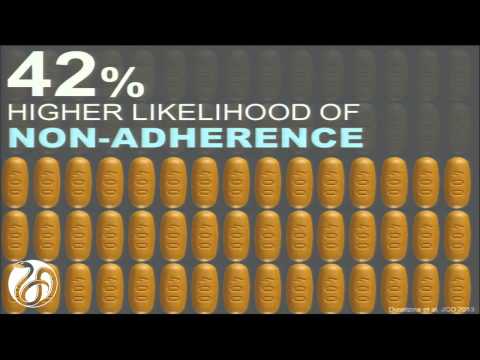There’s a devastating but largely overlooked side-effect threatening the efficacy of many promising cancer therapies: It’s called “financial toxicity.”
 That’s the new official term devised by cancer researchers to describe the burden of out-of-pocket costs and the manifold ways these costs affect wellbeing.
That’s the new official term devised by cancer researchers to describe the burden of out-of-pocket costs and the manifold ways these costs affect wellbeing.
In essence, oncologists are realizing that financial problems have become an independent adverse effect of cancer treatment.
There’s even a standardized tool—the Comprehensive Score for Financial Toxicity—to help clinicians measure the problem.
Developed by oncologist Jonas de Souza and colleagues at the University of Chicago, the COST tool measures various aspects of financial health, such as income, education, marital status, ability to work, additional expenses, and the ways in which these factors affect a patient’s financial as well as physical wellbeing.
Scott Huntington, MD, and colleagues at University of Pennsylvania used the COST tool to study evaluate 100 patients undergoing treatment for multiple myeloma. Their data, published in Lancet Hematology earlier this month, show that –surprise, surprise!— the cost of cancer care leads to dire financial stress which, in turn, reduces treatment compliance, squelches efficacy, dashes quality of life and, basically amplifies the suck factor in an already sucky situation.
The cost of care was crippling even to people with six-figure incomes and full health insurance.
Nearly 40% of patients had to apply for financial assistance to cover medical costs. Forty-three percent tapped their personal savings, and 21% had to borrow money. Ten patients stopped treatment because they could not afford it. Again, all patients were insured and all had full Medicare fee-for-service coverage.
costs. Forty-three percent tapped their personal savings, and 21% had to borrow money. Ten patients stopped treatment because they could not afford it. Again, all patients were insured and all had full Medicare fee-for-service coverage.
“The economic ramifications of their illness and its associated treatments have been often overlooked and are rarely known or discussed,” Dr. Huntington notes.
While the concept of financial toxicity has emerged from the oncology community, it clearly applies across the board in healthcare: any patient treated for any serious illness is likely to be at risk.
Dr. Huntington and co-authors urge physicians to acknowledge “the untenable rise in treatment costs” and to cease willfully ignoring the impact of economics on health. They urge clinicians to work with their patients to promote meaningful health care reforms.







